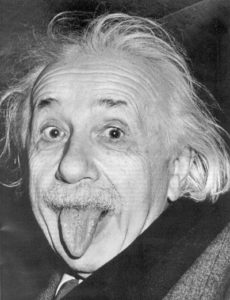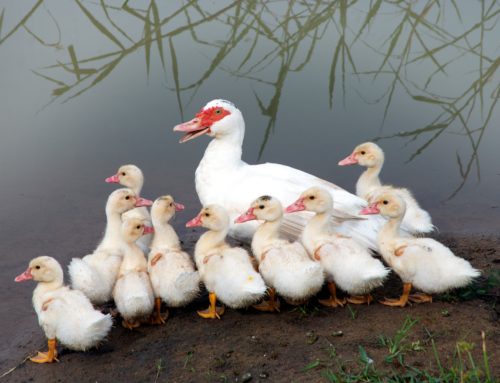 The most interesting and most successful people I know are smart.
The most interesting and most successful people I know are smart.
The best writers I know are frighteningly smart.
So being smarter and raising my IQ has long been a goal of mine.
Some say you’re stuck with the neural cards you’ve been dealt.
But I’m convinced that intelligence can be increased and IQ raised.
Increasingly, researchers are, too.
Here are some ways to do it…virtually instantly…
One is to think more and think more intelligently (duh!). Pay more attention. Zoom in and zoom out. By examining the small details. Then examining the “big picture.” Then go back and forth.
Think and look at things more objectively—without preconceptions or assumptions. It’s not easy, but it can be done.
One way to do it is to look at something from different points of view (for example, from the point of view of someone you admire, from the point of view of a disinterested observer, from the point of view of a visitor from another planet).
See beyond descriptions, definitions and terminology which can be limiting, inexact, one-sided, and sometimes wrong. For example, what’s the opposite of hot?
Cold?
That’s what semanticist Korzybski calls “infantile thinking.” Because cold is not the opposite of hot. If you really think about it (big clue there!) cold is simply less warm than hot—a slower movement of atoms. (More Feldenkrais wisdom.)
So think more and think more deeply. Know and compensate for the things that limit your input and perceptions (for example, hearing and seeing within a very limited range, your cultural background), what limits your thinking (preconceptions, assumptions, definitions). Get into the habit of thinking and perceiving beyond those limitations.
Above all, ask more and different questions than you have been. The smartest people I know ask the most questions and the most thought-provoking questions.
Tune in next time and, if you’re interested, I’ll tell you about two techniques you can practice that have been scientifically proven to raise your IQ.





Great post David. Being able to look at things from other people’s perspective is definitely something that has helped me in a number of areas in my life….I didn’t know it meant I was getting smarter to 🙂
Once again, awesome short post.
Thanks,
Chris
Chris, glad you liked the post.
Jay Abraham, perhaps THE smartest marketer I know, isn’t content, for example, to just read a book and get what he can from it. He always tries to find out other people’s perspectives on it: what they’ve learned, what they believe is important, how they have applied (or will apply) the lessons.
David,
Thank you — great article.
I very much like your reply to Chris regarding Jay Abraham’s idea.
The idea of actively multiplying your own learning and insight by gathering perspectives from others — digging into what lessons they got from a book, how they intend to apply those lessons and so on. That’s a great way to extend your learning capacity by leveraging off other minds that WILL see things that you miss, and WILL interpret the data through a whole different set of filters than you have. Great tip.
Thanks, Wily.
Your site is terrific — full of interesting stuff.
I’m reading the article about remote viewing of the future as a way to generate creative ideas, which reminds me — at least in terms of the idea behind it — of Burt Goldman’s Quantum Jumping.
It’s already working David, I’m smarter after reading your blog post!
Seriously… great article. We both know some insanely smart people in this business. As writers, we need a broad based intellegence.
I also know other successful marketers who just have plain street-smarts.
And the most successful people I know seem to be high in both. There’s a lesson there somewhere…
I eagerly await what comes next!
Mike
Thanks, Mike! Great to hear from you.
Of course, as we both know, the real secret to greater intelligence is lots of dim sum!
Great stuff, David. I think people are smart because they take the time to learn. I know that when I’m working as a journalist (I’m mainly a travel writer), I have to assume that I don’t know anything. My job is to learn first, then write. Observe and ask, ask, ask. And you’re so right about details. Don’t say trees; tell me what kind of trees. Don’t say beautiful. Tell me what is beautiful.
Such unique and practical tips!
Your brilliant comment, ‘Cold is NOT the opposite of hot’ has got my sleepy brain ignited, at last!
I’m asking myself,’OK, then, what is the opposite of hot?’
To be honest, I’m still searching for a good answer (or any answer), but hey, at least I’m THINKING now.
Theoretically, I could question the question itself.
I could break the question into several manageable parts, if necessary.
Also I could define and re-define the meaning of ‘hot’.
Or think about the well-quoted quote that ‘answers can be found in questions themselves’.
Or can I utter a clever non-answer that there’s no single answer to the question?
But in that case, I should find SEVERAL good answers, shouldn’t I?
See, I’ve a long, long way to go, but at least I’ve STARTED!
Thank you so much!
p.s. does anyone know the answer??
Chieko, thanks for the poetic and thought-provoking response.
As for the answer, Bill Clinton might say it depends on what the definite of “opposite” is. Or whether there ever can be a pure opposite (except maybe mathematically, where the opposite of 2 might be -2).
Perhaps, though, the question is like a Zen koan, where the point is your state, not the answer.
Hi David,
Great blog post – looking forward to the two techniques so I can apply the theory-bite you gave us.
Conerning koans, I’m actually reading No Barrier – Unlocking The Zen Koan by Thomas Cleary which has 48 koans with comments for all to marvel at when reading…
… the “Opposite of hot”-dilema reminded me of the state I get when reading them, and also when I ask myself “Who am I?” and feel the emptiness between the question and the mind-generated answer (that one is from Eckhart Tolle).
Have a legendary weekend and thanks from Denmark.
All the best,
Janus
Thanks, Janus. Always a thrill to get feedback from around the world.
That’s a great quote from Tolle and the perfect explanation of what Koans do.
A highly skilled NLP mentor taught me many communication secrets in the early 90’s. One of those life-changing secrets was this: The definition of wisdom is a MULTITUDE of perspectives.
Sure, I’d love to learn more about the two techniques that can raise one’s IQ.
Awesome post. Thank you.
Thanks, Tony.
So true about a multitude of perspectives. Then it’s almost like just as the slightly different perspective of each of our eyes combines to give us three dimensional vision, multiple perspectives gives our thinking another dimension.
Thank you for your awesome advice,David.
Actually I am looking for how to increase my IQ.
So from now on,I use your specific examples of thinking.
I realize the best way to become a smart person is thinking more and more.
I will obtain this life changing habits. (This is my new year resolution)
I look forward to your next post.
Best Regards
Akihiro
Akihiro, good to hear from you again.
I love your “put it into practice” attitude!
Thank you for the refreshingly unique, practical (and short) post, David. Here is one simple action anyone can take to expand their mind, learn new things and become smarter:
The next time you plan to go out to eat, make your mission to experience a new culture, not just satisfy your hunger. For example, this week I went to Lebanese and Palestinian restaurants and learned about new foods, new music and a little about the people who worked there. Two new experiences that have slightly expanded my awareness and given me something new and interesting to talk about.
Bill
Bill, you’re right — I”m stuck in a Chinese and dim sum rut with an occasional excursion to Indian. What a great way to experience more of the world without the expense, inconvenience and indignities of actually traveling!
“Image streaming” as taught by Dr. Win Wenger has helped me. EFT (emotional freedom technique) undoubtedly will…
Azam, I’m a BIG fan of Dr. Win Winger’s work, and did a bit of image streaming today.
Anyone who’s interested in the mind and maximizing its possibilities should definitely check his work.
Dr. Wenger is a proponent of the Socratic Method of education, the point of which is to observe and describe something, perceiving more and more deeply until you make serendiitous connections and discoveries.
That sounds a lot like one of the phases copywriters go through on preparing copy.
Thanks for sharing, David!
Not a bad way to overcome writers’ block. Just keep observing and describing and make the connections and discoveries.
cold is not the opposite of hot! first how hot or how cold are we talking about cold is just a description as is hot and one mans hot is an other mans warm but one thing for sure we have to have hot to have cold and cold to have hot, warm to have chilly and so on.
great thought provoking insite!
And what do we really mean by “opposite”?
David your so right. Observation of the obvious or the ability to look at the obvious without it being
changed by personal viewpoints or self created ideas.
Seeing and excepting the raw truth of something even when it violates your own stable datum.
Thanks, Dean. Objective seeing really is the ideal.
Hi, David,
I think you’re right . . . but have to add that it’s a lot harder for most human beings than you make it sound.
Though, maybe I should realize that for a copywriter, “instantly” means what everybody else thinks “after hours of hard work” means 🙂
Taking a different perspective often means discovering facts — and accepting them despite emotional blocks. I once had a frustrating conversation with a new (then – now she’s very successful) fantasy writer. Somehow the subject of anarchists came up.
“Oh, they’re impossible,” she told me. “Anarchy wouldn’t work.”
I agreed with its practical difficulties, but pointed out that despite our viewpoints, some people still advocated anarchy.
“Oh no,” she insisted. “There aren’t any anarchists. Somebody would seize power.”
She’s not stupid. She’s got lots of novels now selling on Amazon. She probably knows that President William McKinley was assassinated. But she still couldn’t accept the existence of people calling for a kind of politics far outside her experience.
As well as knowing more about leftwing political history, I’d been to protests and personally seen people calling themselves anarchists burn an American flag. She hadn’t.
Richard, really enjoyed your thought-provoking response.
You have a good point about “instantly,” although I do honesty believe that you do instantly become smarter as soon as you apply the things I talked about. However, getting really deep with them, making them your regular and habitual way of thinking — that may indeed take “hours of hard work.”
As for your author friend not knowing about anarchists, hmmm…I wonder why it is they can’t do a better job of getting together and working out ways to publicize their cause?
Hey David,
First it was good to meet you yesterday, however briefly. Here are a few things that seem to make me smarter:
1) lots of input (books, blogs, lectures, conversation) In other words, other people’s thinking)
2) (opposite of #1) daily emptying of my mind – meditating
3) image streaming (and other envisioning techniques)
4) asking better questions, and coming up with answers
5) recognizing that flexibility is a virtue, and uncertainty is always a data-point.
My answer for “the opposite of hot” starts by changing the question to “an opposite of hot,” and opposite is numb.
Paul Lemberg
Paul, it was good to meet you as well.
Some great ideas in your post. “Uncertainty is always a data-point” — that’s great.
For myself, between #1 and #2, I would add interacting with the ideas and thinking from #1 (rather than just passively intaking). That might include thinking more deeply about it, seeing all aspects of it, arguing against it, arguing for it, and finding where it fits in with what I already know. (Someone once said you should spend just as much time thinking about what you read as you do reading. I definitely need to get my ratio up!)
May be the worlds best headline. At least for anyone who wants to be smarter, instantly.
Thanks for the high praise, KJ!
The simplicity of that headline is staggering.
Critical thinking is a skill (and a topic) that needs to be brought back to the forefront of overall discussion in this country.
Thanks, Joseph.